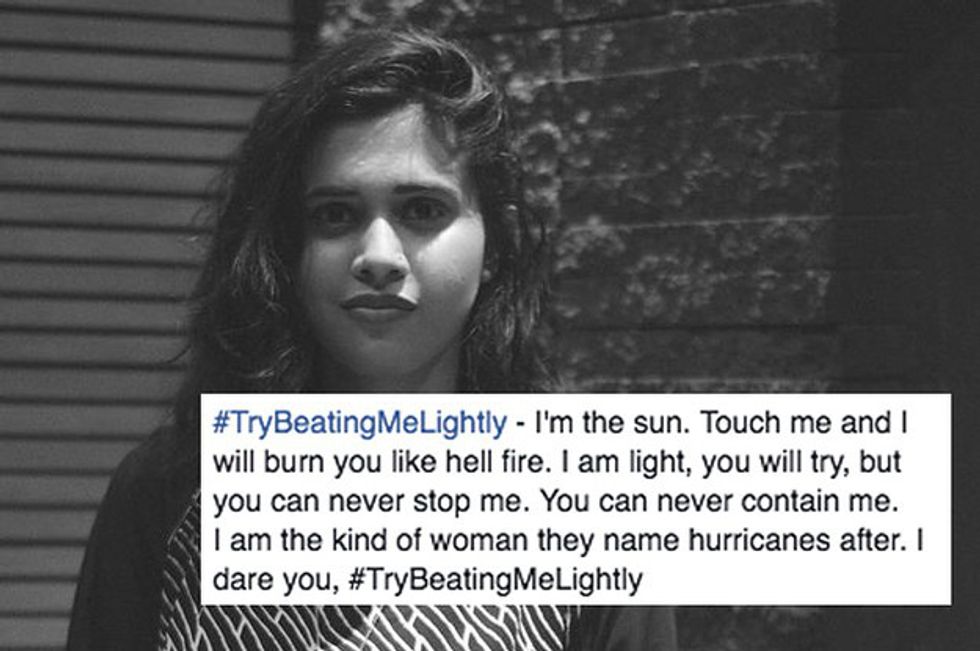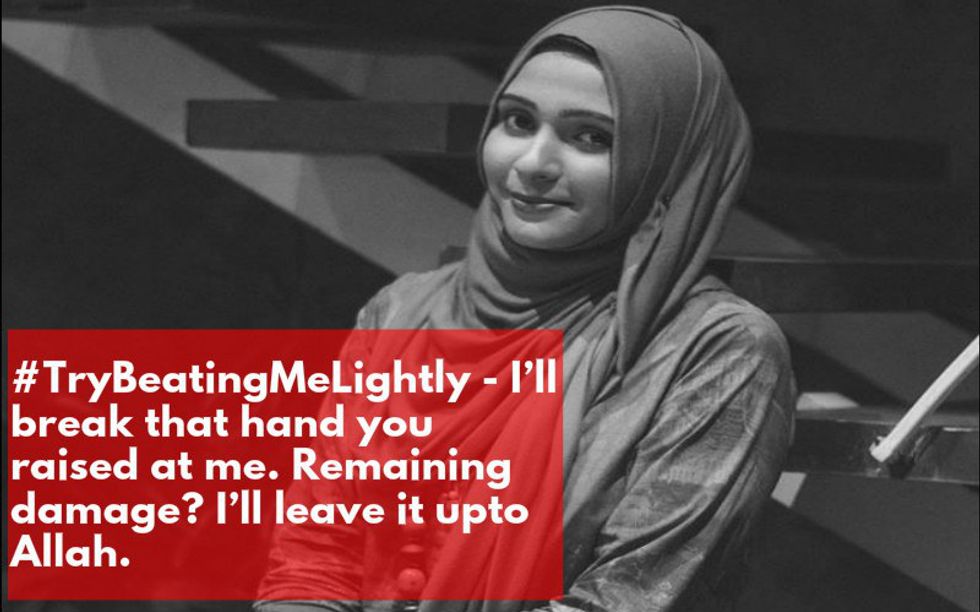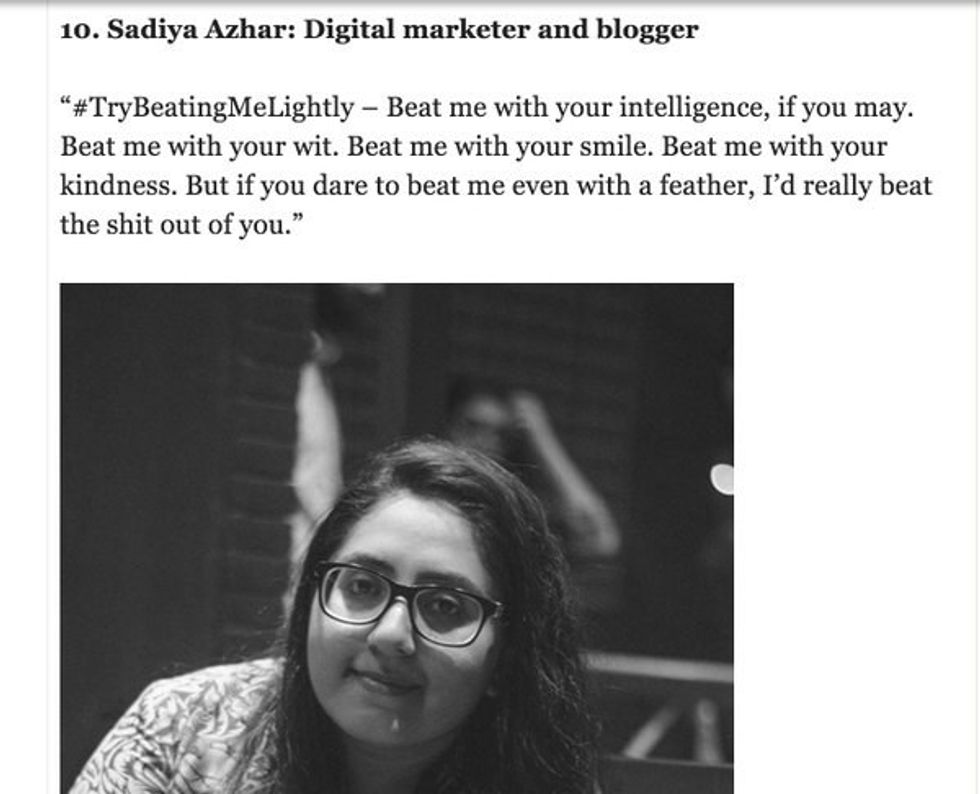Last week, the Council of Islamic Ideology (CII) has drafted a proposal of the “Women Protection Bill,” which allows for the “light beating” of a woman if she “defies” her husband. That “defiance” can go from not dressing the way he likes, to turning down sex, interacting with strangers, speaking too loudly, or refusing to bathe after her period. This bill inclusively bans women from appearing on TV and print advertising and forbids female nurses from treating male patients...Oddly enough, the bill's purpose does not correlate with its name at all. Describing this bill as only a harsh restriction is putting the matter too lightly, no pun intended.
The chairman of the CII said a “light beating” should be a husband’s last resort (as if that makes it justified), according to the Washington Post:
“If you want her to mend her ways, you should first advise her. … If she refuses, stop talking to her … stop sharing a bed with her, and if things do not change, get a bit strict. . . [if that doesn’t work,] hit her with light things like handkerchief, a hat or a turban, but do not hit her on the face or private parts.”
Though these recommendations are not at all binding, this is a pure example of how the more conservative strains of Islam view the roles of women. This bill seemingly not only encourages domestic abuse, but also fuels emotional abuse and manipulation within a marriage, two things that should not exist in a healthy relationship to begin with. Hitting a women "lightly" does not make it okay; how is a handkerchief any different from a cane if the purpose is the same? Pakistan's Human Rights Commission estimates that 70 percent of Pakistani women have suffered domestic violence. The last thing Pakistan needs is an invitation for violence upon women. This bill is a floodgate to other laws that legalize abuse and cases where people now have an excuse to defend their actions with. In a country where women can drive and have no restrictions on what to wear, this bill further brings us five steps back in the already small strides we've made towards equality. But I refuse to believe or allow this bill to get passed in the 21st century, and so do many others.
#TryBeatingMeLightly is a new photography series that has gone viral around the world for empowering females in Pakistan to speak out against this bill that legalizes abuse against women. A photographer named Fahhad Rajper wrote on Facebook, the beginnings of his vision “to empower women amongst us who work towards individual and collective betterment. It’s an opportunity for those to voice their opinions who can’t or don’t.”
The black-and-white photographs feature 12 Pakistani women, captioned with their resistant responses to the bill, and what might happen if a man tried to hurt them. Fahhad reached out to women all around the world to join in the movement and the now hashtag has spread as women shared pictures of themselves in defiance of the misogynistic bill.
“[The bill] shows the decadent mindset of some elements who are part of the council,” Islamabad-based human rights activist Farzana Bari told Washington Post. “The proposed bill has nothing to do with Islam and it would just bring a bad name to this country.” While some Pakistani leaders belittled the proposal, calling it a "national embarrassment" that is still not enough. Bari touches upon the fact that the oppression of women is not written in any part of this religion, so then why is oppression and politics now taken hand in hand?
As read in Dawn, there are plenty of other things that can be beat that do not include women: including eggs, carpets, ketchup bottles, ice trays, bed sheets, podiums, remote controls, and "It", as Michael Jackson mentions in his song "Beat It."
Domestic violence shouldn’t be a “last resort” because it shouldn’t be an option to begin with. No form of oppression is acceptable. As a women, what this movement has taught me is that our defiance against these disgusting bills and cases is the most important. Our knowledge is something to spread continuously, not our acceptance. As a unit, we can all collectively make the five steps further and then some in our route to equality.






















